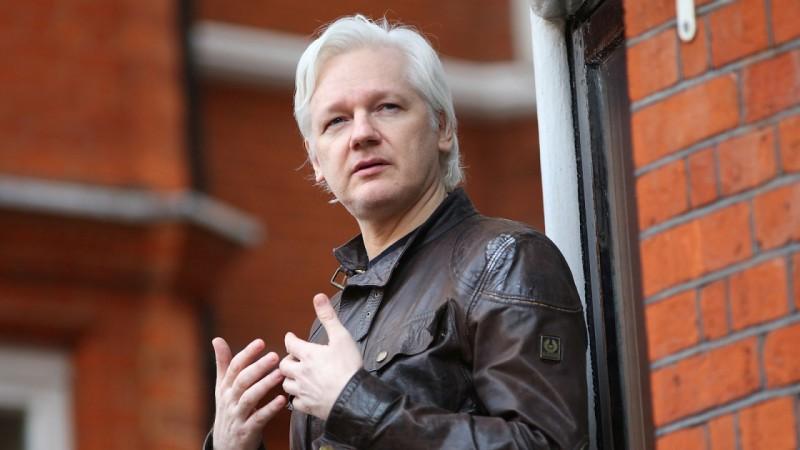Hundreds of people gathered in front of the British Home Office to protest against the extradition of WikiLeaks founder Julian Assange to the US, denouncing it as "politically motivated" and a "grave threat to freedom of press".
The protestors assembled on Tuesday in London, Xinhua news agency reported.

After Assange waged several rounds of appeal battle spanning months, Britain's Westminster Magistrate's Court issued a formal order in April to extradite him to the US to face espionage charges.
The case is now at the hands of British Home Secretary Priti Patel, who will decide whether to approve the extradition.
The Wikileaks founder's legal team can make submissions before Wednesday to Patel explaining why the former shouldn't be extradited.
On Tuesday, Assange's wife Stella Assange said on Twitter that a representation had been filed to the Home Secretary to block his extradition to the US.
Assange, 50, is wanted in the US on allegations of disclosing national defence information following WikiLeaks's publication of hundreds of thousands of leaked military documents relating to the Afghanistan and Iraq wars a decade ago, which included an Apache helicopter video footage documenting the US military gunning down Reuters journalists and children in Baghdad's streets in 2007.
"It's very clear that the case is politically motivated because the American authorities are using the espionage act to attempt extradition. And the espionage act has been historically used to suppress American dissidents," Lano Nika, a protester, told Xinhua.
"This case is critical not only for media freedom, but also for institution accountability and personal freedoms," she added.

"We know that media freedom has been eroding and in a precarious state. It is not in a good condition in our Western part of the world and that needs to be turned around. This case illustrates the fragility of media freedom," Kristinn Hrafnsson, Editor-in-Chief of WikiLeaks, told Xinhua.
He said his team will keep on fighting if Patel signs the extradition, as there're other legal avenues for appeal, including taking this case up to the European Court of Human Rights.
"There are legal avenues but it will take time and enough is enough. He has spent too much time deprived of his liberty and the opportunity to spend time with his wife and his children," he said, noting that Assange's health has been deteriorating after long incarceration.
The Wikileaks founder has been held at south London's high-security Belmarsh Prison since 2019. He married his long-term partner Stella Moris, a lawyer, in the prison in March.
Lawyers for the US said earlier that Assange would be allowed to transfer to Australia, his home country, to serve any prison sentence he may be given.








